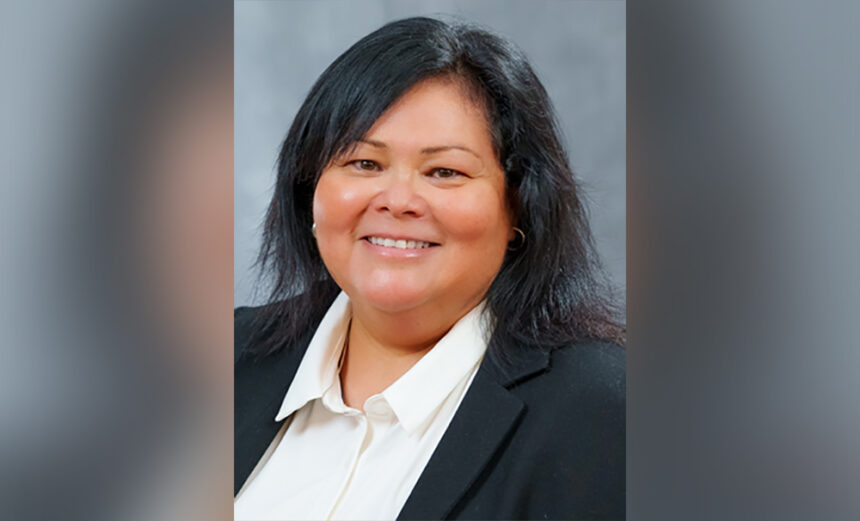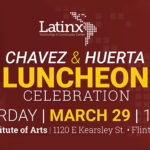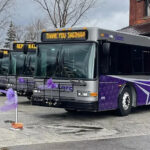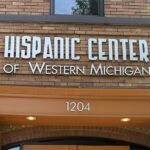SAGINAW, MI — In her Delta College student recruitment efforts though El Camino (The Way), Monica Hernandez does not preach that her mother was a migrant farmworker and that as a teen she endured her share of rigorous labor in the fields. She simply aims for potential pupils to know that she cares, and that she carries empathy for whatever challenges that a young adult may encounter.
Still, her personal background is a mirror in her presentations, with the next scheduled for Feb. 27 at Union Civica Mexicana, 2715 Wadsworth, starting at 5 p.m. Her job title has advanced to assistant director of Delta’s downtown center, but she remains a student recruiter and counselor at heart.
Monica’s mother, Dora, came north during the late 1960s from Corpus Christi to work the fields. In the Thumb area, Dora encountered and wedded Augustine Hernandez, a homegrown product of Akron-Fairgrove High School, where he had been a standout athlete. When he found employment at GM Truck and Bus in Flint, she no longer needed to work the sugar beets and other crops. But Dora remained so that she could assist and organize the migrants for fair treatment.
Her daughter has inherited that same spirit in pursuit of civil rights.
Hernandez graduated from Caro High School but did not feel like a true member of the Class of 1991. Other than taking part in sports, this time reflecting her father, she felt isolated — not by direct slurs, but incidents that transpired. For example, she recalls her brother being suspended for a fight at football practice, while the white combatant was unpunished.
Both parents pushed hard for education, to the point that her mother took her to the fields as a teen, a preview of her possible fate if she neglected her schooling. The hardest task, she recalls, was to “de-tassel” ears of corn.
“That made me feel like my arms were going to fall off,” she says. “My mother could not attend college, so she wanted to make sure her children would do so.”
Monica matriculated first to Delta, then to Saginaw Valley State. She describes her K-12 grades as “average,” but she began to soar in college, with eventual achievement of twin masters from Central Michigan and Western Michigan universities in the curricula of professional counseling.
She landed some scholarships, although they were more rare than the financial aid that she helps students uncover nowadays, and so she worked her way through college. Early on, her employment at Marlette’s Teen Ranch exposed her to challenges faced by children raised in unstable families. This helped lead to her career at Delta, now in her 26th year.
Hernandez notes: “The kids (at Teen Ranch) didn’t even think of attending college. For them, it was not an option.”
For this reason, she emphasizes that counselors must be versatile and address each student based on where they currently stand in life, not allowing hard times — past or present — to stand in the way.
El Camino is Delta’s “Hispanic/Latino student success initiative,” as Michael Gavin, the community college’s president, continues pursuit of increased diversity in enrollment.
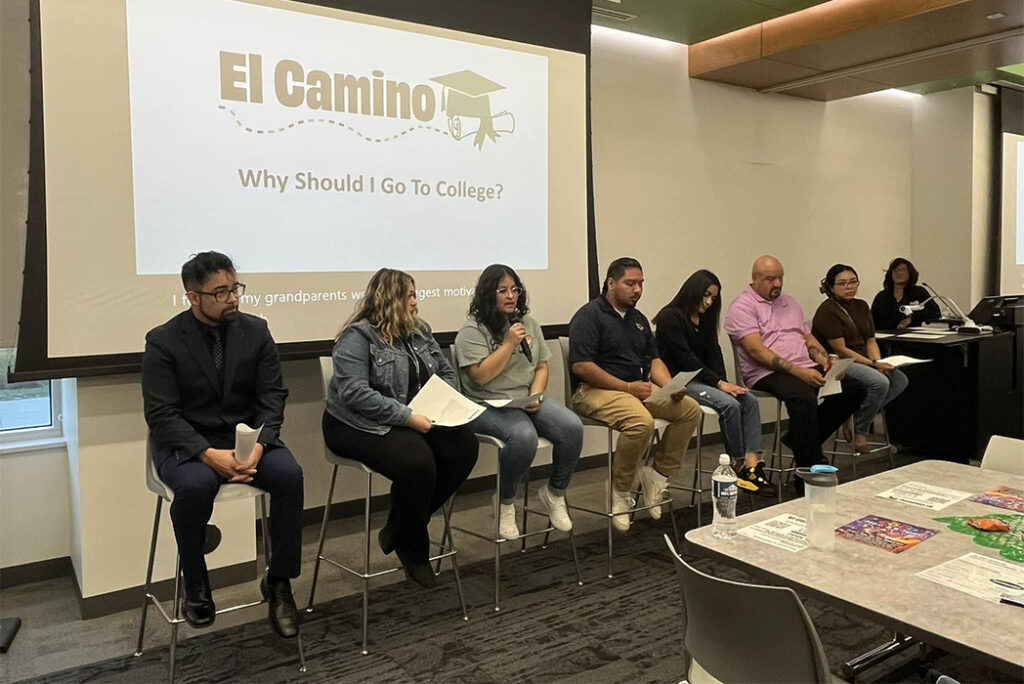
The outreach team also includes Christopher DeEulis, DEI director; Elsa Olvera, Educational Opportunities Center director; and Cynthia Reyes, student admissions representative.
For anyone not able to attend Union Civica on Feb. 27, individuals may visit Delta downtown at 319 East Genesee or phone (989) 752-7500.
To view the Mi Gente on Air interview with El Camino leaders, click here.


